Ethnic Albanians in south seek help from Tirana
Representatives of ethnic Albanians from southern Serbia have called for internationalization of the Preševo Valley crisis.
Sunday, 13.01.2013.
12:28

PRESEVO Representatives of ethnic Albanians from southern Serbia have called for internationalization of the Presevo Valley crisis. They also opposed the removal of a monument honoring members of the so-called Liberation Army of Presevo, Bujanovac and Medvedja (UCPMB). Ethnic Albanians in south seek help from Tirana After a joint Saturday meeting, representatives of ethnic Albanians from the southern Serbian municipalities of Presevo, Bujanovac and Medvedja called on Albania to help get international institutions involved in resolving Presevo Valley issues. The councilors of the joint Albanian Presevo Valley assembly adopted a political declaration against a proposed removal of the controversial monument which was unveiled in downtown Presevo on November 16, 2012. The declaration contains a total of ten conclusions in which the councilors of the ethnic Albanian assembly call on governments of Albania and Kosovo to influence the authorities in Serbia and encourage a dialogue with the “legitimate political representatives of the Presevo Valley.” The Albanian councilors are fully committed to finding political solutions to Presevo Valley problems and call on international institutions of the UN, NATO, OSCE, CoE, and the EU to encourage the Serbian government to continue the dialogue with the political representatives of the Presevo Valley, reads the declaration. In one of the conclusions, the ethnic Albanians stressed their right to the use of symbols expressing national identity and opposed every form of forcible removal of such symbols, including the controversial monument in Presevo. The councilors consider an erection of a memorial to Serbian Gendarmerie members in southern Serbia a severe provocation and they condemned “threatening statements” made by Serbia's state officials regarding their own memorial. The assembly meeting was attended neither by representatives of the Belgrade and Pristina governments nor by representatives of international organizations and foreign diplomats, despite announcements about their arrival. Chairman of the Serbian government's Coordination Body for Presevo, Bujanovac and Medvedja Zoran Stankovic also did not attend the session since he had not even been invited, despite his demands to be present at the session, Tanjug learned from the government's body on Saturday. Presevo Mayor Ragmi Mustafa was resolute in reiterating his stance that he would resign as a mayor if the Serbian authorities forcibly removed the monument from the central square. Serbian Prime Minister Ivica Dacic said late on Friday that the Serbian government would remove the controversial monument in Presevo if no agreement was reached with local authorities, adding that the illegally set up memorial plaque was a grave provocation directed against all Serbs. He had earlier announced the removal of the monument “by hook or by crook.” The memorial has inscribed on it the names of 27 ethnic Albanians killed during the period between the end of the NATO bombing campaign in June 1999 and May 31, 2001, the day which marked the end to the inter-ethnic conflict in southern Serbia. The OVPMB was an offshoot of the Kosovo Liberation Army (KLA) in Kosovo. The Albanian councilors' session was held in the municipal assembly building, located in the square where the disputed memorial to the fallen soldiers was set up. The controversial monument in Presevo (Beta, file) Tanjug
Ethnic Albanians in south seek help from Tirana
After a joint Saturday meeting, representatives of ethnic Albanians from the southern Serbian municipalities of Preševo, Bujanovac and Medveđa called on Albania to help get international institutions involved in resolving Preševo Valley issues.The councilors of the joint Albanian Preševo Valley assembly adopted a political declaration against a proposed removal of the controversial monument which was unveiled in downtown Preševo on November 16, 2012.
The declaration contains a total of ten conclusions in which the councilors of the ethnic Albanian assembly call on governments of Albania and Kosovo to influence the authorities in Serbia and encourage a dialogue with the “legitimate political representatives of the Preševo Valley.”
The Albanian councilors are fully committed to finding political solutions to Preševo Valley problems and call on international institutions of the UN, NATO, OSCE, CoE, and the EU to encourage the Serbian government to continue the dialogue with the political representatives of the Preševo Valley, reads the declaration.
In one of the conclusions, the ethnic Albanians stressed their right to the use of symbols expressing national identity and opposed every form of forcible removal of such symbols, including the controversial monument in Preševo.
The councilors consider an erection of a memorial to Serbian Gendarmerie members in southern Serbia a severe provocation and they condemned “threatening statements” made by Serbia's state officials regarding their own memorial.
The assembly meeting was attended neither by representatives of the Belgrade and Priština governments nor by representatives of international organizations and foreign diplomats, despite announcements about their arrival.
Chairman of the Serbian government's Coordination Body for Preševo, Bujanovac and Medveđa Zoran Stanković also did not attend the session since he had not even been invited, despite his demands to be present at the session, Tanjug learned from the government's body on Saturday.
Preševo Mayor Ragmi Mustafa was resolute in reiterating his stance that he would resign as a mayor if the Serbian authorities forcibly removed the monument from the central square.
Serbian Prime Minister Ivica Dačić said late on Friday that the Serbian government would remove the controversial monument in Preševo if no agreement was reached with local authorities, adding that the illegally set up memorial plaque was a grave provocation directed against all Serbs.
He had earlier announced the removal of the monument “by hook or by crook.”
The memorial has inscribed on it the names of 27 ethnic Albanians killed during the period between the end of the NATO bombing campaign in June 1999 and May 31, 2001, the day which marked the end to the inter-ethnic conflict in southern Serbia.
The OVPMB was an offshoot of the Kosovo Liberation Army (KLA) in Kosovo.
The Albanian councilors' session was held in the municipal assembly building, located in the square where the disputed memorial to the fallen soldiers was set up.










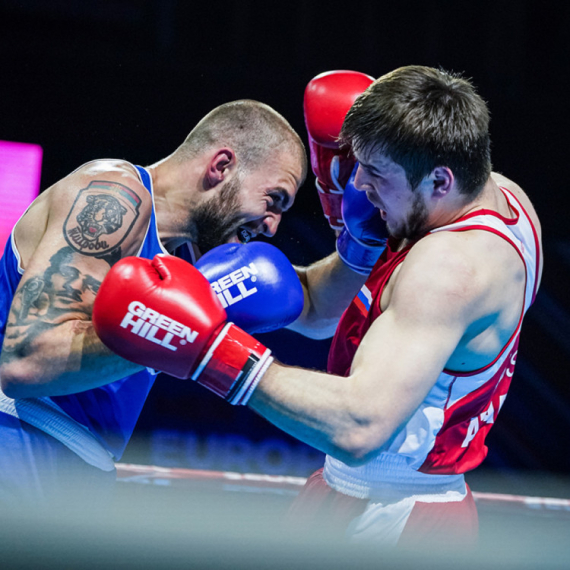
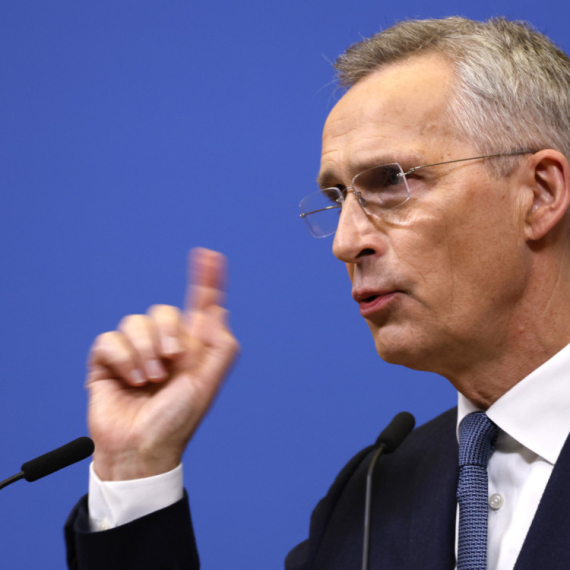
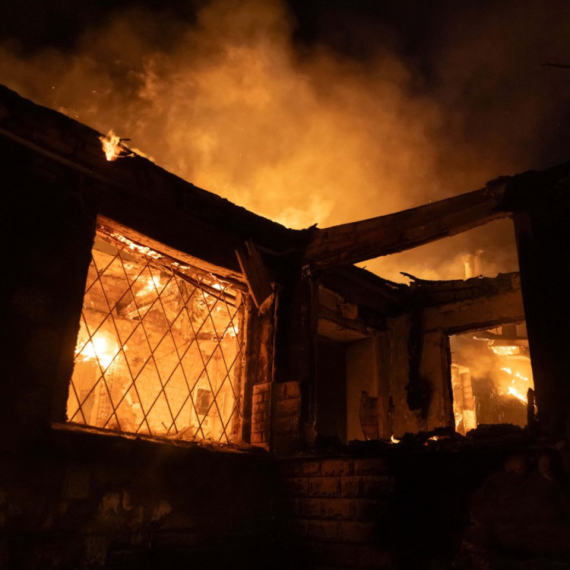

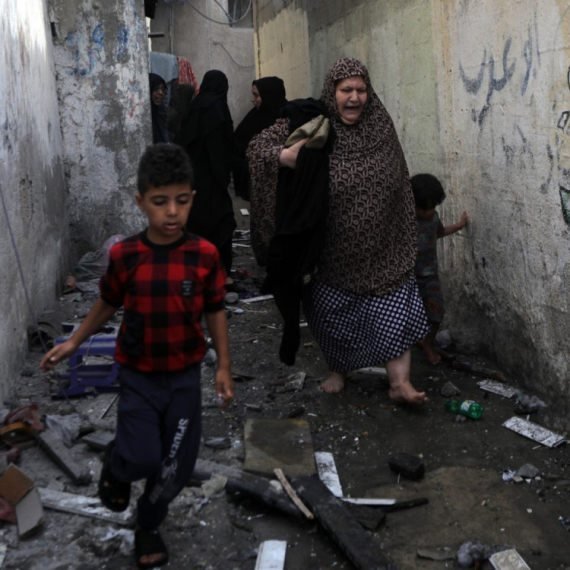
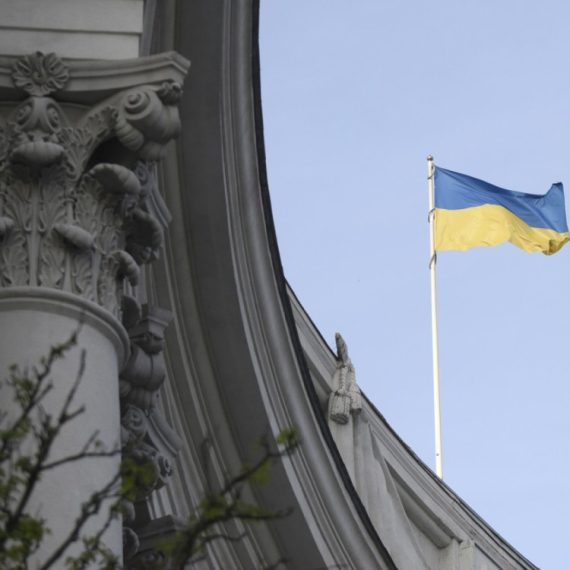
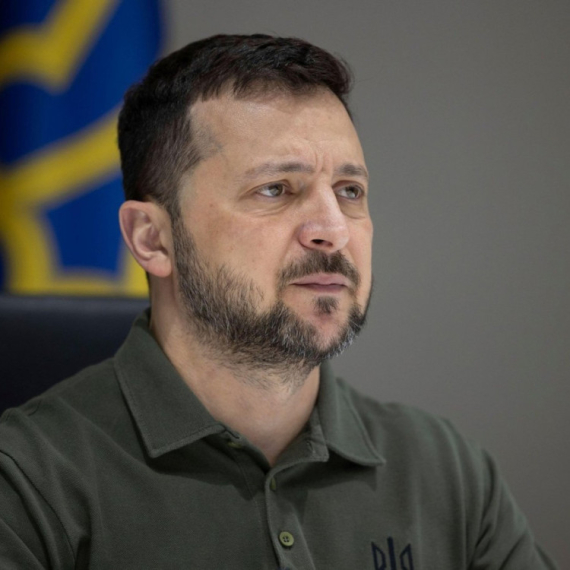









































Komentari 30
Pogledaj komentare